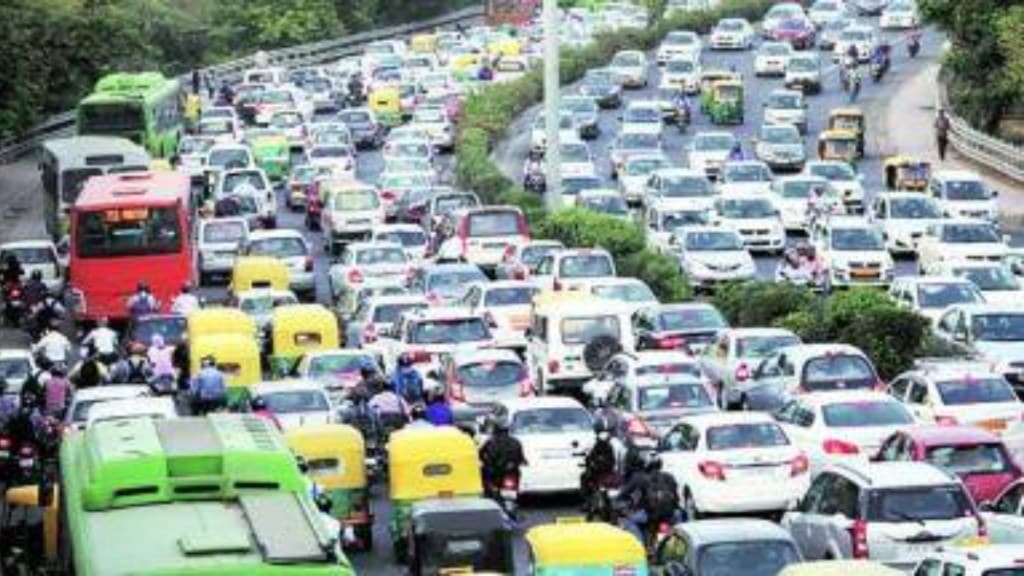RC Bhargava, chairman of Maruti Suzuki India, the country’s largest passenger vehicle manufacturer, has said that the tax structure in the auto sector needs rationalisation.
Speaking at the company’s annual media meet on late on Monday, he said that the regulatory burden is the highest on small cars and a uniform tax structure across all segments of vehicles will not augur well for the growth of the sector.
“Taxation on cars has always remained high compared to most other products. You cannot grow an industry with 50% taxation (including cess). It has not happened anywhere in the world,” he said. “Even in richer countries, where cars are much more affordable for their population (because their per capita income is high), taxes on cars are much lower. In the EU, for example, it’s about 19% and in Japan it’s about 10%. That kind of taxation on cars isn’t very different from the rate of taxes on most other products in those countries,” Bhargava added.
Also Read: Five reasons behind the drastic growth of the pre-owned luxury car market post-pandemic
He said that the government needs to think that should cars be charged more than the average rate of taxation? “If yes, then we are, in some way, accepting the thing that cars or luxury products should be taxed more than non-luxury products, which is the old socialist way of thinking and taxation,” he said.
According to him, the countries that have progressed on manufacturing have done it on the basis of the auto industry, and the government should take a rational decision on taxing cars.
He highlighted that the affordability factor has been an impediment for the car industry’s growth for several years now, and the growth rate is only falling. Bhargava said that the car industry’s growth in the country has slowed to 3% from 12% in the past 12 years. “Car penetration figures show that we are adding 1 point each year to the car penetration. It is somewhere around 30 cars per thousand people. It has been going up in the last five years by one person per year. If our target is to get to China’s level which is now 170 (cars) per 1,000 people, it will take us 140 years to get there,” he said.
Also Read: Indians get upwardly mobile on the road too
At present, automobiles are taxed at a 28% GST with additional cess ranging from 1% to 22% depending on the type of vehicle. Cars imported as completely built units (CBUs) attract customs duty ranging between 60% and 100%, depending on engine size and cost, insurance and freight (CIF) value being less or above $40,000.
On free trade agreements (FTAs) in the automobile industry, Bhargava said that India has the capability of being far more competitive in manufacturing than anywhere else in the world. “I am not in the least concerned about competition from elsewhere. I think certain volumes we can stand even if it is dumped. I personally believe India should aggressively go and reduce tariffs and enter FTAs at the same time, and we should do what it takes to make our industrial manufacturing much more competitive. FTAs open up a big markets for us to expand, and we can compete not through the dumping route, but by providing good quality, highly competitive vehicles for many parts of the world,” he said.
Bhargava said that while the country’s economy is doing well, and the growth rates will be somewhere close to 7%, it would be higher if manufacturing could grow faster.
“Unfortunately, manufacturing in India has still remained a laggard. A whole lot of reforms and changes have happened, but for some reason, we are not able to make the sort of progress that we should be making,” he said. Bhargava added that there is a gap in the policy objectives and the implementational efficiencies. “It is better even if your policy is not the best but it is implemented fully and correctly. A good policy can become a bad policy if it is not implemented properly, and an average policy can become a good policy if it is well implemented. And I think where we have been lacking all these years is in the implementational machinery,” he said highlighting that there is more work to be done.


















